Why is Hong Kong's China extradition plan so controversial?
Hong Kong witnessed its largest protest since the city's 1997 handover to China
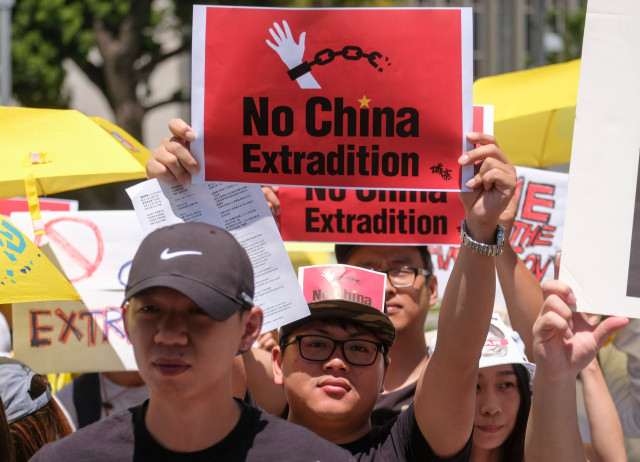
Protesters march during a demonstration to protest against a controversial extradition law proposed by Hong Kong's pro-Beijing government to ease extraditions to China, in Los Angeles on June 9, 2019
The crowds wanted the city's pro-Beijing leaders to scrap the proposals -- but there is little sign of that happening, and the issue has plunged the city into a political crisis.
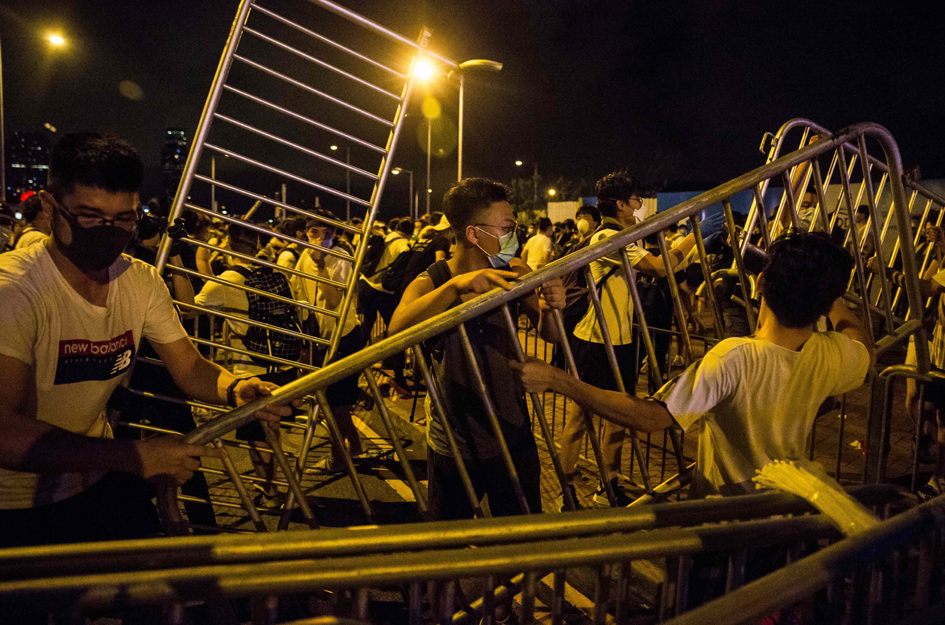 Protesters block roads with barricades during clashes with police after a rally against a controversial extradition law proposal in Hong Kong. Photo: AFP
Protesters block roads with barricades during clashes with police after a rally against a controversial extradition law proposal in Hong Kong. Photo: AFPThe city's government is pushing a bill through the legislature that would allow extraditions to any jurisdiction with which it does not already have a treaty -- including mainland China.
They say it is needed to plug existing loopholes and prevent the city from becoming a bolthole for fugitives.
Hong Kong leader Carrie Lam says safeguards are in place to protect the city's free speech, and to ensure political cases will not be affected by the extradition law.
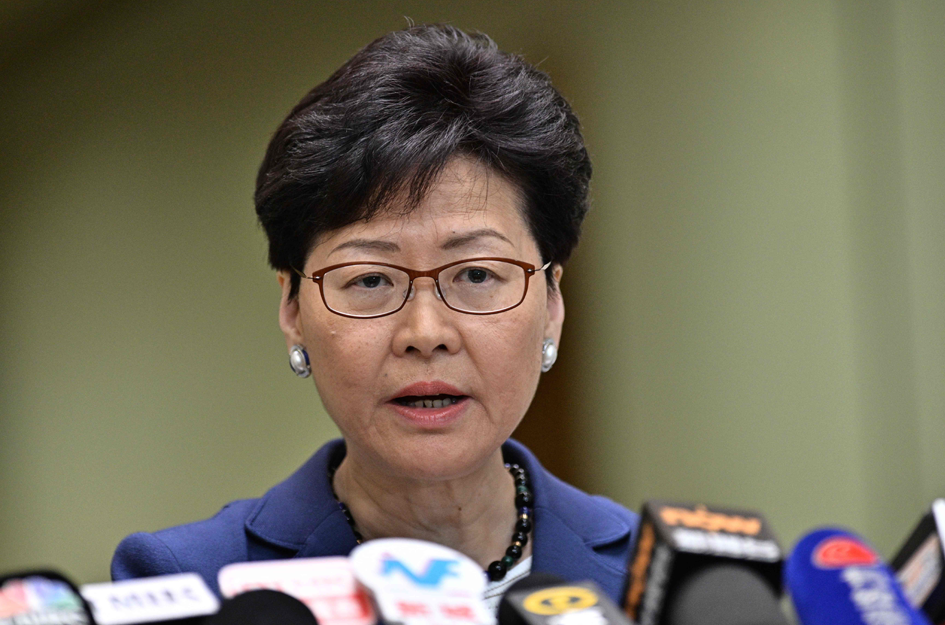 Chief Executive Carrie Lam holds a press conference in Hong Kong on June 10, 2019. Photo: AFP
Chief Executive Carrie Lam holds a press conference in Hong Kong on June 10, 2019. Photo: AFPShe also argues that the law meets international standards for human rights and that only serious crimes that carry sentences above seven years will be considered.
A broad cross-section of society has opposed the legislation, including lawyers and influential legal bodies, business figures and chambers of commerce, journalists, activists and western envoys.
Then on Sunday some one million people marched against the bill, according to organisers, in unprecedented scenes.
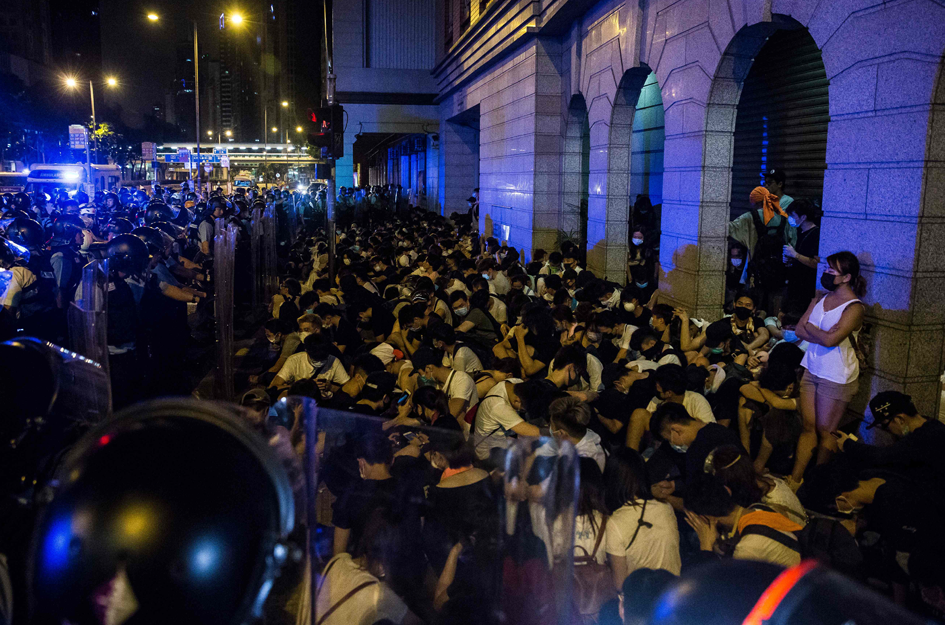 Protesters are detained by police after a rally against a controversial extradition law. Photo: AFP
Protesters are detained by police after a rally against a controversial extradition law. Photo: AFPHong Kong's appointed leaders are increasingly perceived to be doing the bidding of Beijing, and there is little trust in their assurances that the law won't impact the city's prized independent judiciary or its wider freedoms.
Jimmy Sham, convenor of the group behind Sunday's protests, said young people felt 'powerless' in the face of a 'brutal' government.
Yes. But under the 1997 handover agreement with Britain, China has agreed to a 50-year deal where Hong Kong is able to retain key liberties, such as freedom of speech and an independent judiciary.
The city's courts and rule of law, built around the British legal system, are key to the financial hub's economic success.
The idea of Hong Kong being a bolthole for fugitives had never been high up the political agenda. But after a Hong Kong man murdered his girlfriend while on holiday in Taiwan and fled back home, local authorities seized on the case to call for an overhaul of the law.
Despite confessing to Hong Kong police, authorities were unable to extradite him because the two territories do not share an agreement.
The extradition law was born, covering any place Hong Kong doesn't have a specific agreement with -- including mainland China for the first time.
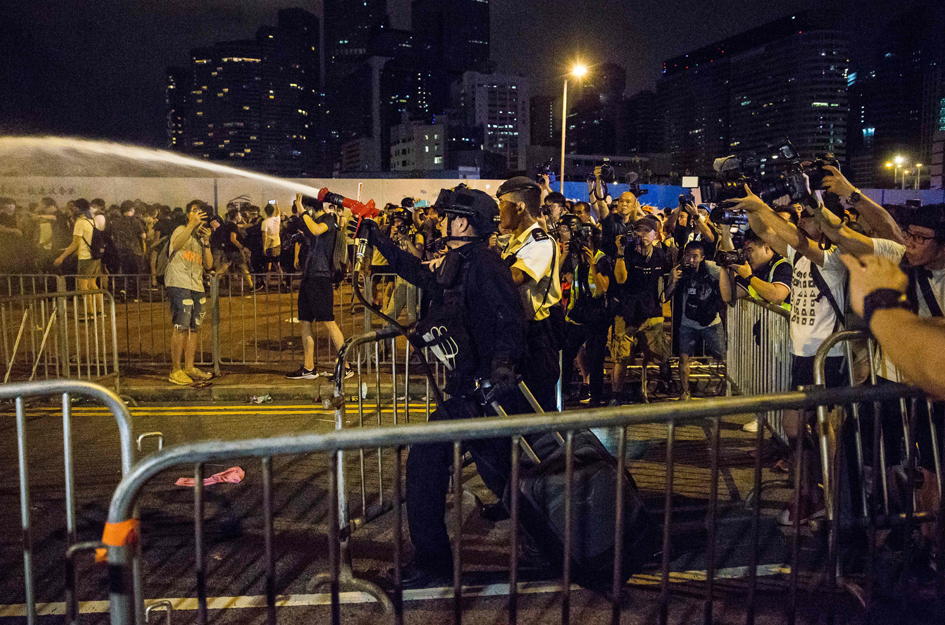 A police officer (C) uses pepper spray during clashes with protesters. Photo: AFP
A police officer (C) uses pepper spray during clashes with protesters. Photo: AFPA petition run by a group that supports the bill has collected more than 800,000 signatures, while the Hong Kong government has a comfortable majority of lawmakers who have say they will back the bill.
But proponents have not managed to get people onto the streets in anything like the numbers seen in Sunday's opposition protest, making it hard to gauge genuine public support.
There are no signs of tension diffusing. On Monday Carrie Lam refused to delay or scrap the extradition bill, and said her administration had already made major concessions to protect human rights.
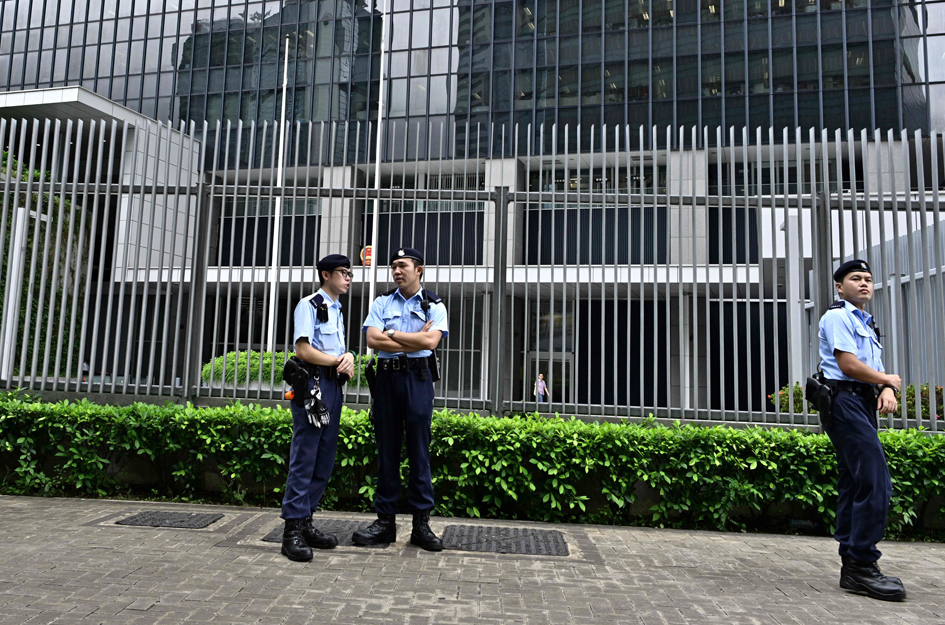 Police stand guard outside the government headquarters in Hong Kong. Photo: AFP
Police stand guard outside the government headquarters in Hong Kong. Photo: AFPHong Kong police said they will track down protestors behind violence in the early hours of Monday morning.
But opponents of the law have also doubled down, announcing plans for fresh protests on Wednesday alongside calls for a city-wide strike.
And Beijing has added its own rhetoric to the mix, attacking 'foreign forces' for trying to disrupt a 'sensible, legitimate' piece of legislation.




1725099588-0/BeFunky-(41)1725099588-0-208x130.webp)

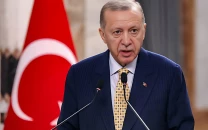












COMMENTS
Comments are moderated and generally will be posted if they are on-topic and not abusive.
For more information, please see our Comments FAQ